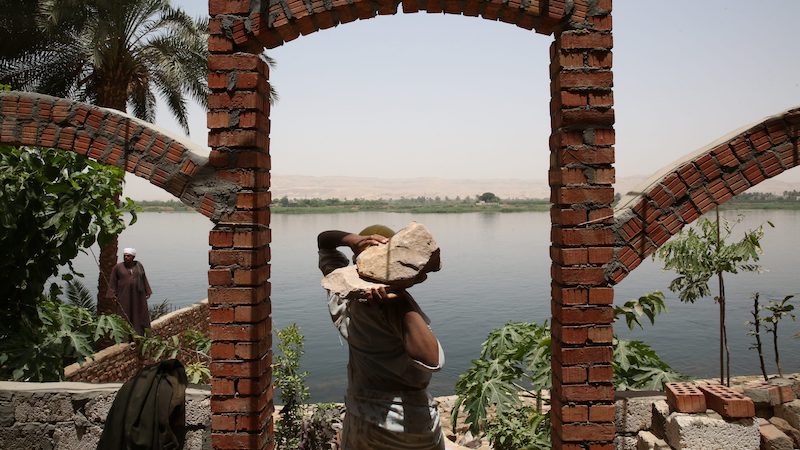Comment: The new finance goal needs clear and enforceable adaptation targets to help vulnerable countries cope with the impact of climate change
Mattias Söderberg is global climate lead at DanChurchAid. Bertha Argueta is a senior advisor on climate finance and development at GermanWatch. Cristina Rumbaitis del Rio is a senior advisor on adaptation and resilience at the UN Foundation. Ana Mulio Alvarez is a researcher on adaptation at E3G.
As COP29 unfolds in Baku, the urgency of addressing climate finance has never been more pronounced. The negotiations are fraught with challenges, and in particular, there is a stark lack of progress on adaptation. No country is willing to pay the increasing climate bill.
However, the costs associated with climate change will not diminish if countries bury their heads in the sand. Rather, they will escalate unless critical investments are made now.
Adaptation to climate change is not a future concern—it is a present necessity. Vulnerable countries are already grappling with the harsh realities of climate impacts, which include increased frequency of extreme weather events and rising sea levels.
The lack of adequate adaptation measures has led to significant climate-related loss and damage, highlighting a critical gap in adaptation finance that is estimated to be in the range of US$194 billion to US$366 billion per year by the UN Environment Programme.
Vast funding gap
Despite ongoing commitments from developed nations to double adaptation finance, skepticism remains regarding how these funds are reported and counted. Many countries from the Global South have expressed doubts about the transparency and definitions used in reporting climate finance, particularly within the framework of the UNFCCC. This lack of clarity undermines trust and complicates negotiations.
The Adaptation Fund, with a fundraising target of $300 million, exemplifies the challenges faced in securing adequate resources for adaptation initiatives.
Adaptation Fund head laments “puzzling” lack of pledges at COP29
This target pales in comparison to larger funds like the Green Climate Fund but remains unmet, with pledges at COP29 falling short of one-third of this goal. The need for robust language in the New Collective Quantified Goal (NCQG) is essential to ensure a stronger emphasis on adaptation financing moving forward.
Adaptation target in new finance goal
The NCQG discussions are centered around three key elements: quantum, contributor base, and structure of the new goal.
While these factors are crucial, it is equally vital that negotiators prioritize adaptation within this framework. Countries like the Least Developed Countries (LDCs) and the Alliance of Small Island States (AOSIS) are championing this c
Read More

